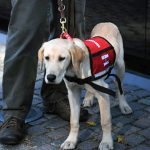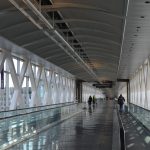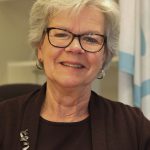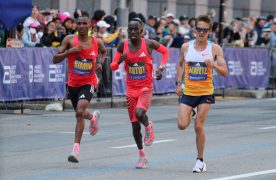A report released by the American Civil Liberties Union of Massachusetts Wednesday found that the Boston Police Department’s social media monitoring campaign targeted Muslims and protected speech.
The ACLU obtained documents through the Massachusetts Public Records Law, which revealed that the BPD’s Regional Intelligence Center used a social media surveillance system, Geofeedia, to conduct online surveillance from January 2014 to May 2016.
The Geofeedia files showed that the BRIC primarily used the service to target keywords that fell under “Islamic extremist terminology.” Included in this list of keywords was the often-used “ISIS” and a list of Arabic words used in everyday conversation by members of Muslim communities.
However, the results showed there was nothing suspicious in Boston. Most posts that were found to contain these targeted words were often conversations about Islam as a religion itself and other posts that “quite often, made jokes involving — terrorism … ”
The report stated that the BPD used Geofeedia to collect and monitor thousands of posts on Twitter, Facebook, YouTube, Instagram, YikYak and Flickr.
Pawan Dhingra, professor and chair of the department of sociology at Tufts University, wrote in an email that this surveillance has many negative implications.
“It’s harmful because it strips away their basic right to be treated as an individual and not as part of a stereotyped group,” Dhingra wrote. “It’s also harmful in that it can lead to unnecessary interactions with legal authorities, who are seeing them as potential threats.”
He wrote that profiling can negatively impact members of the Muslim community.
“The profiling normalizes discrimination and prejudice against Muslims,” Dhingra wrote. “It says that this is a group that could threaten you and needs to be kept under strict control. It makes the group ultimately less equal and less human.”
James Kimberly, 57, of Dorchester, said he strongly opposes the BPD’s surveillance methods and thinks personal privacy should be protected.
“I think it’s terrible that we’re willing to let our paranoia get to us this far, where we’re willing to become Big Brother and monitor the speech of law-abiding American citizens,” Kimberly said.
Dhingra wrote that the safety some residents feel from surveillance is often a false sense of security.
“Some people are okay with racial profiling because they think that it keeps them safer,” Dhingra wrote. “But, that is not known to be true. Also, people believe that racial profiling is only done to ‘bad’ people. In reality, any group that the state determines to be a problem can be under surveillance.”
However, opposition to this surveillance was not universal. Alexandra Tammaro, 24, of South Boston, recalled the Boston Marathon bombing of 2013, and said this type of surveillance makes her feel safer.
“Even if it may not be fair, this is what happens,” Tammaro said. “We need to learn to accept the fact that times are changing because the threat of being attacked, in my opinion, is only growing.”
Tammaro said she thinks extra security is important to protect her loved ones.
“I love my country, I love my home, I love my family and I would want any threats of that being compromised to be dealt with accordingly,” she said.
In their report, the ACLU stated that the National Research Council and other organizations have found that large-scale data mining is an ineffective public safety approach.
In a letter to Deputy Secretary of the Department of Homeland Security Elaine Duke, dozens of machine learning experts said that this type of data mining leads to many false positives in the search.
John Robbins, executive director of the Council on American-Islamic Relations — Massachusetts, said he hopes the public outcry will be met with change.
“It’s extremely troubling that the Boston Police Department would have filtered search results around such terms which for Muslims involve colloquial faith practice,” Robbins said. “We hope that the large public outcry from a variety of minority community leaders will prompt them to seriously consider such targeting efforts in the future.”
Marta Laso, 43, of East Boston expressed deep concern for those on both sides of the issue.
“It hurt[s] me to see an entire community being treated as though they are potential criminals,” Laso said. “But we never know who has what intention.”
Laso said she thinks it’s important for people to develop a mutual understanding of others’ struggles.
“All I can really say is that the Muslim community needs to remain strong, and to acknowledge the problems all over the world because of extremists,” Laso said. “And we need to take a step back, as outsiders, [and think about] how it must feel to be a Muslim right now.”














